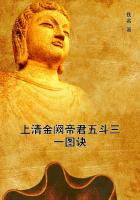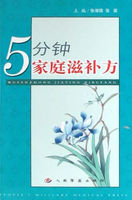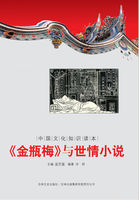The money was paid. But this was not enough. The late events in the south of India had increased the financial embarrassments of the Company. Hastings was determined to plunder Cheyte Sing, and, for that end, to fasten a quarrel on him. Accordingly, the Rajah was now required to keep a body of cavalry for the service of the British Government. He objected and evaded. This was exactly what the Governor-General wanted. He had now a pretext for treating the wealthiest of his vassals as a criminal. "I resolved,"--these were the words of Hastings himself,--"to draw from his guilt the means of relief of the Company's distresses, to make him pay largely for his pardon, or to exact a severe vengeance for past delinquency." The plan was simply this, to demand larger and larger contributions till the Rajah should be driven to remonstrate, then to call his remonstrance a crime, and to punish him by confiscating all his possessions.
Cheyte Sing was in the greatest dismay. He offered two hundred thousand pounds to propitiate the British Government. But Hastings replied that nothing less than half a million would be accepted. Nay, he began to think of selling Benares to Oude, as he had formerly sold Allahabad and Rohilcund. The matter was one which could not be well managed at a distance; and Hastings resolved to visit Benares.
Cheyte Sing received his liege lord with every mark of reverence, came near sixty miles, with his guards, to meet and escort the illustrious visitor, and expressed his deep concern at the displeasure of the English. He even took off his turban, and laid it in the lap of Hastings, a gesture which in India marks the most profound submission and devotion. Hastings behaved with cold and repulsive severity. Having arrived at Benares, he sent to the Rajah a paper containing the demands of the Government of Bengal.
The Rajah, in reply, attempted to clear himself from the accusations brought against him. Hastings, who wanted money and not excuses, was not to be put off by the ordinary artifices of Eastern negotiation. He instantly ordered the Rajah to be arrested and placed under the custody of two companies of sepoys.
In taking these strong measures, Hastings scarcely showed his usual judgment. It is possible that, having had little opportunity of personally observing any part of the population of India, except the Bengalees, he was not fully aware of the difference between their character and that of the tribes which inhabit the upper provinces. He was now in a land far more favourable to the vigour of the human frame than the Delta of the Ganges; in a land fruitful of soldiers, who have been found worthy to follow English battalions to the charge and into the breach. The Rajah was popular among his subjects. His administration had been mild; and the prosperity of the district which he governed presented a striking contrast to the depressed state of Bahar under our rule, and a still more striking contrast to the misery of the provinces which were cursed by the tyranny of the Nabob Vizier. The national and religious prejudices with which the English were regarded throughout India were peculiarly intense in the metropolis of the Brahminical superstition. It can therefore scarcely he doubted that the Governor-General, before he outraged the dignity of Cheyte Sing by an arrest, ought to have assembled a force capable of bearing down all opposition.
This had not been done. The handful of sepoys who attended Hastings would probably have been sufficient to overawe Moorshedabad, or the Black Town of Calcutta. But they were unequal to a conflict with the hardy rabble of Benares. The streets surrounding the palace were filled by an immense multitude, of whom a large proportion, as is usual in Upper India, wore arms. The tumult became a fight, and the fight a massacre. The English officers defended themselves with desperate courage against overwhelming numbers, and fell, as became them, sword in hand. The sepoys were butchered. The gates were forced.
The captive prince, neglected by his gaolers, during the confusion, discovered an outlet which opened on the precipitous bank of the Ganges, let himself down to the water by a string made of the turbans of his attendants, found a boat, and escaped to the opposite shore.
If Hastings had, by indiscreet violence, brought himself into a difficult and perilous situation, it is only just to acknowledge that he extricated himself with even more than his usual ability and presence of mind. He had only fifty men with him. The building in which he had taken up his residence was on every side blockaded by the insurgents, But his fortitude remained unshaken.
The Rajah from the other side of the river sent apologies and liberal offers. They were not even answered. Some subtle and enterprising men were found who undertook to pass through the throng of enemies, and to convey the intelligence of the late events to the English cantonments. It is the fashion of the natives of India to wear large earrings of gold. When they travel, the rings are laid aside, lest the precious metal should tempt some gang of robbers; and, in place of the ring, a quill or a roll of paper is inserted in the orifice to prevent it from closing. Hastings placed in the cars of his messengers letters rolled up in the smallest compass. Some of these letters were addressed to the commanders of English troops. One was written to assure his wife of his safety. One was to the envoy whom he had sent to negotiate with the Mahrattas. Instructions for the negotiation were needed; and the Governor-General framed them in that situation of extreme danger, with as much composure as if he had been writing in his palace at Calcutta.















